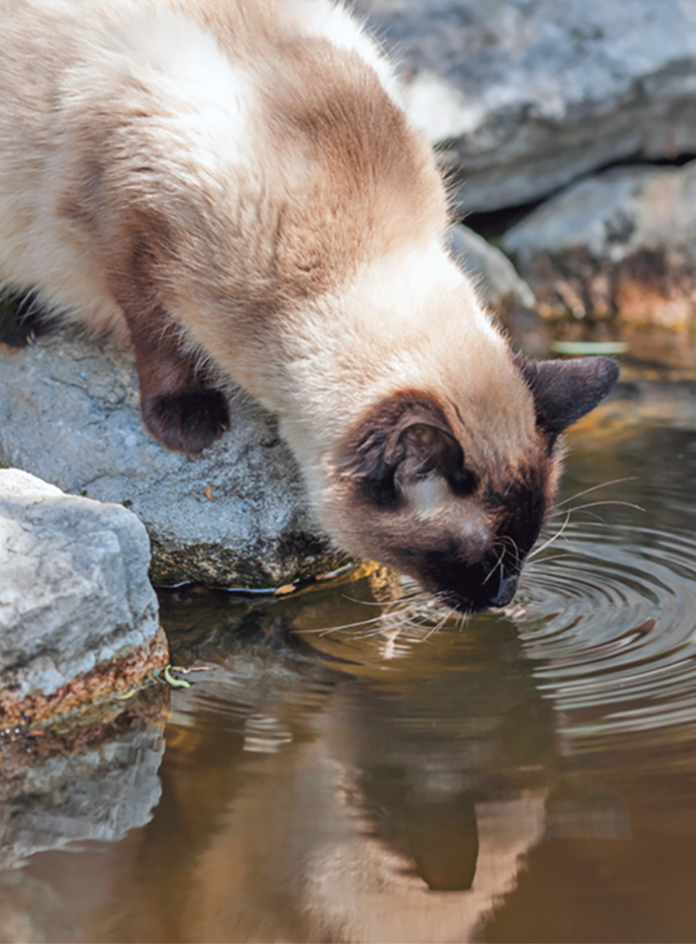Q. I have a 16-year-old indoor-outdoor male cat who I had recently noticed was urinating a lot and drinking a lot of water. I put him outside to do “his business,” and he was gone for 48 hours. When he finally came back, he was bumping into things when he walked around. I took him to the veterinarian and they gave him fluid injections and took some bloodwork. The results were all normal except for a slight indication of renal failure. He started to eat, but no vision improvement. Do you have any suggestions for dealing with his vision loss?
A. Thanks for getting in touch, and I am very sorry to hear of your kitty’s problems. First, it is very important that you continue to work with your veterinarian to manage the problems already identified and to follow his/her recommendations regarding further diagnostic tests and/or therapy to address any other health problems that may be identified.
With respect to the renal disease that has been diagnosed, a few thoughts that may be helpful. After ruling out any infections and/or the presence of uroliths (stones) and/or crystals in the urinary tract that may be causing problems, and after making sure that your cat has not had access to any toxins or medications that can negatively affect kidney function, it is quite possible that this disease will be characterized as chronic kidney disease (CKD). We do not currently know the specific cause of CKD, but it is quite common in cats, particularly as they get older. If this is the case, dietary protein and phosphorus restriction, along with making sure that he always has access to fresh water and is appropriately supplemented with B vitamins and (more controversially) antioxidants will be important to assure best outcomes.
Other common causes of increased thirst and urination in cats are diabetes and hyperthyroidism. Given the fact that the bloodwork did not show an elevated blood glucose, diabetes is less likely, and you can ask your veterinarian about the possibility of checking your cat’s thyroid status if this has not already been done. There are specific therapies for both diabetes (usually requires insulin injections) and hyperthyroidism (radioiodine therapy and methimazole administration are most commonly used to treat this disease in cats).
Regarding the vision loss, please discuss the possibility of hypertension (high blood pressure) in your cat, as this can cause retinal detachment in cats. Hypertension may be caused by kidney disease, but it can also be caused by hyperthyroidism. In rare cases, it may occur as a lone problem, but regardless of cause, it is important to control because hypertension can negatively impact the eyes, heart, kidney, and brain of affected cats. Of course, it is important to address any other health problems that may contribute to hypertension, but in some cases anti-hypertensive medications may be recommended while this is being done.
If the vision loss is due to retinal detachment, I am sad to say that it is not likely that his vision will return. There are things you can do, though, to assure that the quality of life of a blind cat remains relatively high, and you can discuss these with your veterinarian if your kitty does turn out to be permanently blind. If there are any questions regarding the cause of the blindness, referral to a veterinary ophthalmologist would be a very reasonable thing to pursue.
I hope that this is helpful, and please send an update if you can. I’m sending my best wishes for a good outcome for your baby.
All my best,
Elizabeth




